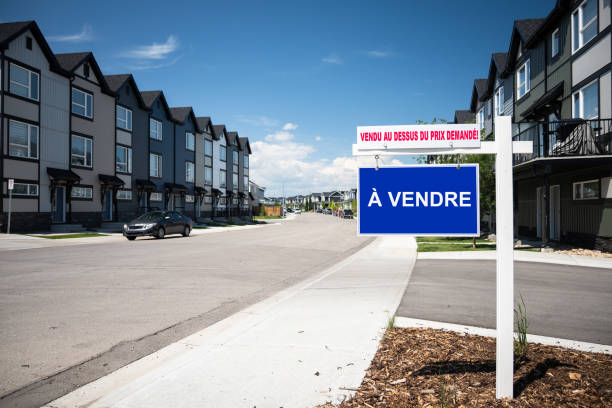Choosing between renting and buying is one of the most significant financial decisions Canadians face. With housing prices climbing and interest rates shifting, many are left wondering what makes the most sense for their current and long-term goals. This in-depth guide explores the pros and cons of renting vs buying in Canada, equipping you with all the insights you need to make an informed decision.
Thank you for reading this post, don't forget to subscribe!Understanding the Landscape of Renting vs Buying in Canada
Before diving into the pros and cons, it’s important to understand the context of housing in Canada. Cities like Toronto, Vancouver, and Montreal are known for high property prices, while others like Halifax, Winnipeg, and Saskatoon may offer more accessible options. Renting vs buying in Canada depends largely on income, lifestyle, job security, and future planning.
Pros of Renting in Canada
1. Flexibility
Renting allows tenants the freedom to relocate without the burden of selling a property. For professionals, students, or those unsure about settling down, renting is a flexible solution.
2. Lower Upfront Costs
Renting requires a security deposit and first month’s rent, unlike buying which involves a down payment, legal fees, property taxes, and other closing costs.
3. No Maintenance Responsibility
When renting, landlords handle most repairs and property maintenance. This can significantly reduce stress and surprise expenses.
4. Access to Prime Locations
Many central locations in cities like Montreal and Toronto are unaffordable for buyers but accessible to renters. Renting provides access to vibrant neighborhoods and amenities.
Cons of Renting in Canada
1. No Equity Buildup
Monthly rent payments do not contribute to ownership or asset growth, unlike mortgage payments that build equity over time.
2. Limited Control
Tenants must abide by landlord rules and have limited customization options. Changes like renovations or even painting may require approval.
3. Rent Increases
Landlords can raise rent annually, based on provincial guidelines. Over time, rent may surpass what a mortgage payment would cost.
4. Lack of Stability
Leases can be terminated or not renewed, causing forced relocation and uncertainty.
Pros of Buying in Canada
1. Long-Term Investment
Real estate is generally considered a stable long-term investment. Property values in Canadian cities often appreciate, creating potential for equity growth.
2. Predictable Costs
With a fixed-rate mortgage, monthly housing costs are stable and predictable compared to fluctuating rents.
3. Customization and Control
Owners can renovate, redecorate, and upgrade their property without needing permission. This freedom adds to comfort and personalization.
4. Pride of Ownership
Owning property provides a sense of security and achievement. Homeowners also benefit from long-term community involvement.
Cons of Buying in Canada
1. High Upfront Costs
Buying a home requires a substantial down payment (often 5%–20%), legal fees, inspections, insurance, and more.
2. Ongoing Maintenance
Homeowners are responsible for all repairs, maintenance, and renovations—costs that can add up quickly.
3. Market Volatility
The housing market can fluctuate. Economic downturns, policy changes, or regional shifts can impact property values.
4. Reduced Mobility
Selling a home takes time and money. Those who may need to relocate frequently may find homeownership limiting.
Renting vs Buying in Canada: Financial Comparison
Initial Cost Breakdown
- Renting: First and last month’s rent + damage deposit
- Buying: Down payment + legal fees + closing costs + land transfer tax
Monthly Expenses
- Renting: Rent + utilities (sometimes included)
- Buying: Mortgage + property tax + insurance + utilities + maintenance
Long-Term Equity
- Renting: No equity
- Buying: Builds equity and property value over time
Regional Analysis: Renting vs Buying in Canada
Vancouver
- High property prices and low vacancy rates make renting attractive
- Buying involves million-dollar listings for modest homes
- Explore: Vancouver Apartments – Premium City Living
Montreal
- Affordable housing market compared to Toronto or Vancouver
- Great options for both renters and buyers
- Explore: Luxurious Montreal Apartments for Rent
Pointe-Claire
- Suburban charm with luxury and comfort
- Renting provides high-end access without ownership costs
- Explore: Pointe-Claire Apartments – Luxury Comfort
Coquitlam
- Fast-growing real estate scene
- Balanced rental and ownership opportunities
- Explore: Modern Apartments in Coquitlam – Braemar
Chilliwack
- Emerging market with lower prices
- Good for first-time buyers or budget-conscious renters
- Explore: Bright Chilliwack Rental Basement Suite
When Renting Makes Sense in Canada
- You plan to stay short-term (less than 3–5 years)
- Your job or income is uncertain
- You want to avoid property maintenance
- You prioritize flexibility and convenience
When Buying Makes Sense in Canada
- You plan to stay long-term (5+ years)
- You have stable income and good credit
- You’re ready for the responsibilities of ownership
- You want to build equity and invest in the future
Property Taxes in Canada
How do property taxes work in Canada?
Property taxes are levied annually by municipalities and are based on the assessed value of your home. They fund local services like education, policing, and infrastructure.
Is property tax mandatory in Canada?
Yes. Homeowners must pay property taxes, and failure to do so can lead to legal consequences including fines or seizure of property.
How much do you pay in property taxes in Canada?
Rates vary by province and municipality. On average, expect to pay 0.5% to 2.5% of your home’s assessed value annually.
How to avoid estate tax in Canada on property?
Canada does not impose a formal estate tax. However, deemed disposition rules treat property as if sold at death, triggering capital gains tax. Strategies like gifting, joint ownership, or trusts can help reduce tax impact.
Frequently Asked Questions
Q: Is it cheaper to rent or buy in Canada?
It depends on the location, market conditions, and your financial situation. In hot markets like Toronto or Vancouver, renting is often more cost-effective in the short term.
Q: What credit score is needed to buy a house in Canada?
A score above 650 is generally required, though better rates and approval odds come with scores over 700.
Q: Can I rent with bad credit in Canada?
Yes, though landlords may require a guarantor or larger deposit. Renters with steady income and references may still qualify.
Q: Are property taxes higher in cities or rural areas?
Generally, urban areas have higher tax rates due to more services, but this varies by province and municipality.
Q: Does buying a house always save money long-term?
Not always. Ownership comes with costs like repairs and taxes. The long-term savings depend on market growth and how long you stay.
Conclusion
The decision between renting vs buying in Canada isn’t one-size-fits-all. It hinges on your financial stability, lifestyle goals, and future plans. While buying offers long-term equity and customization, renting gives flexibility and lower upfront costs. Weighing the pros and cons with your priorities in mind will help you make the right choice for your journey.







